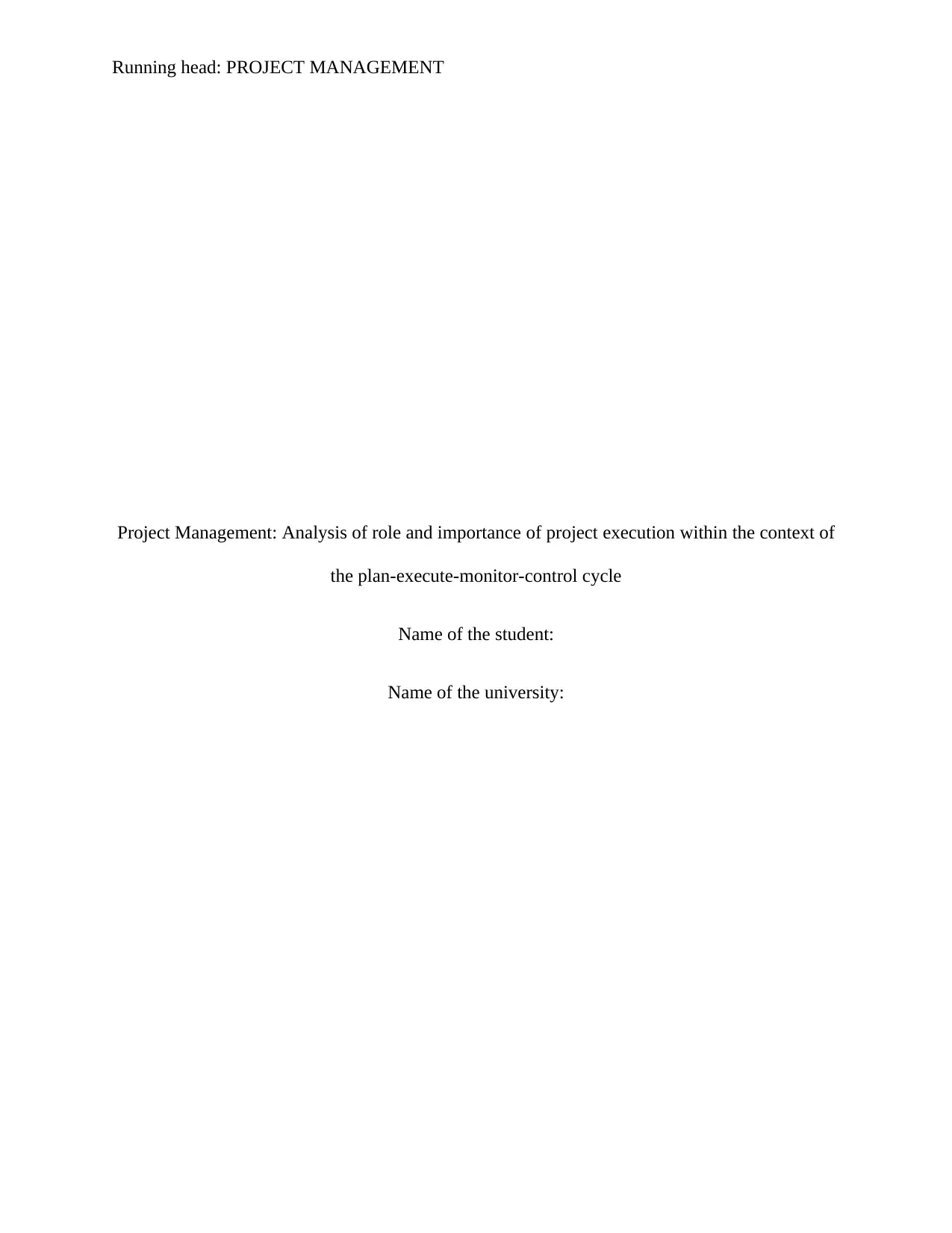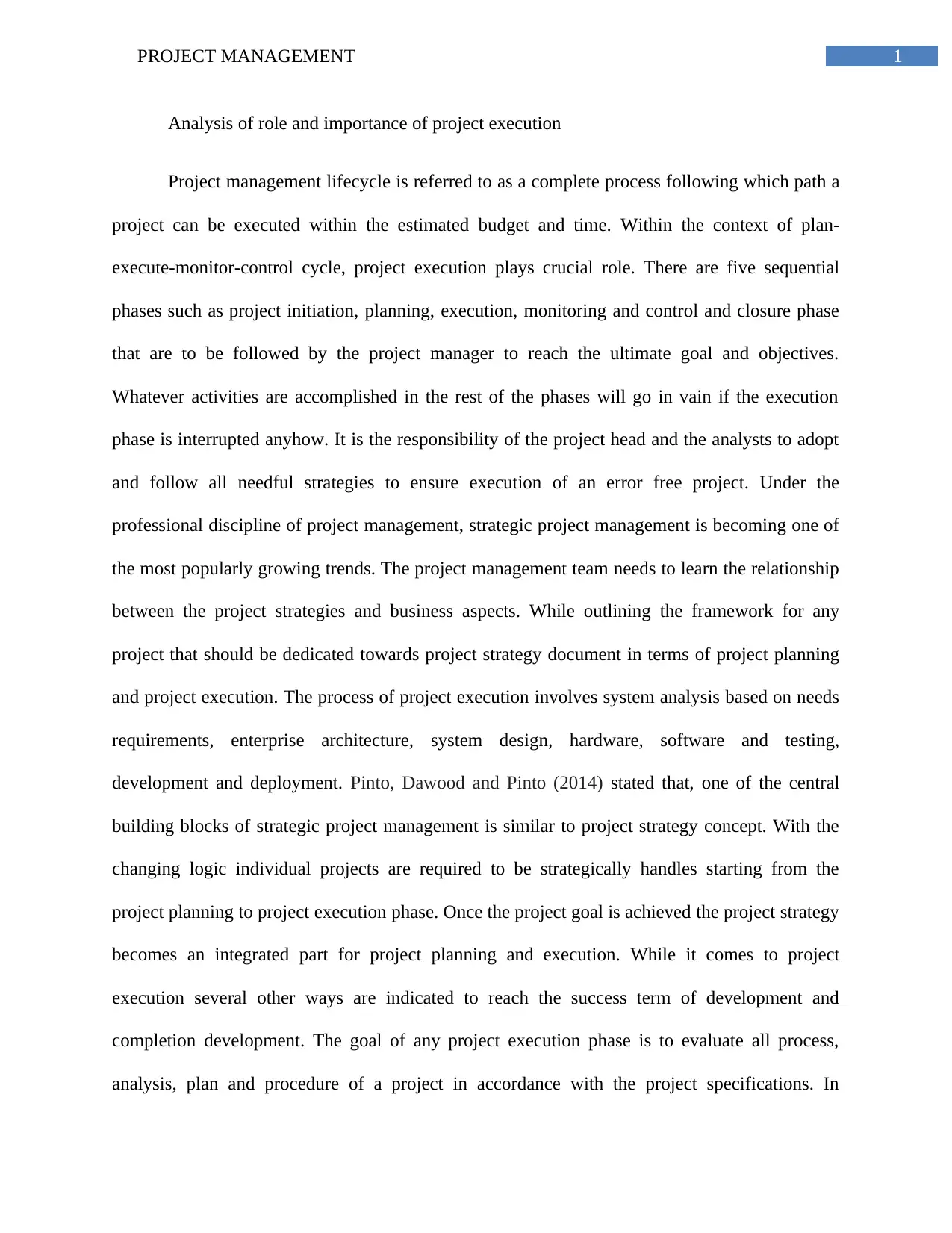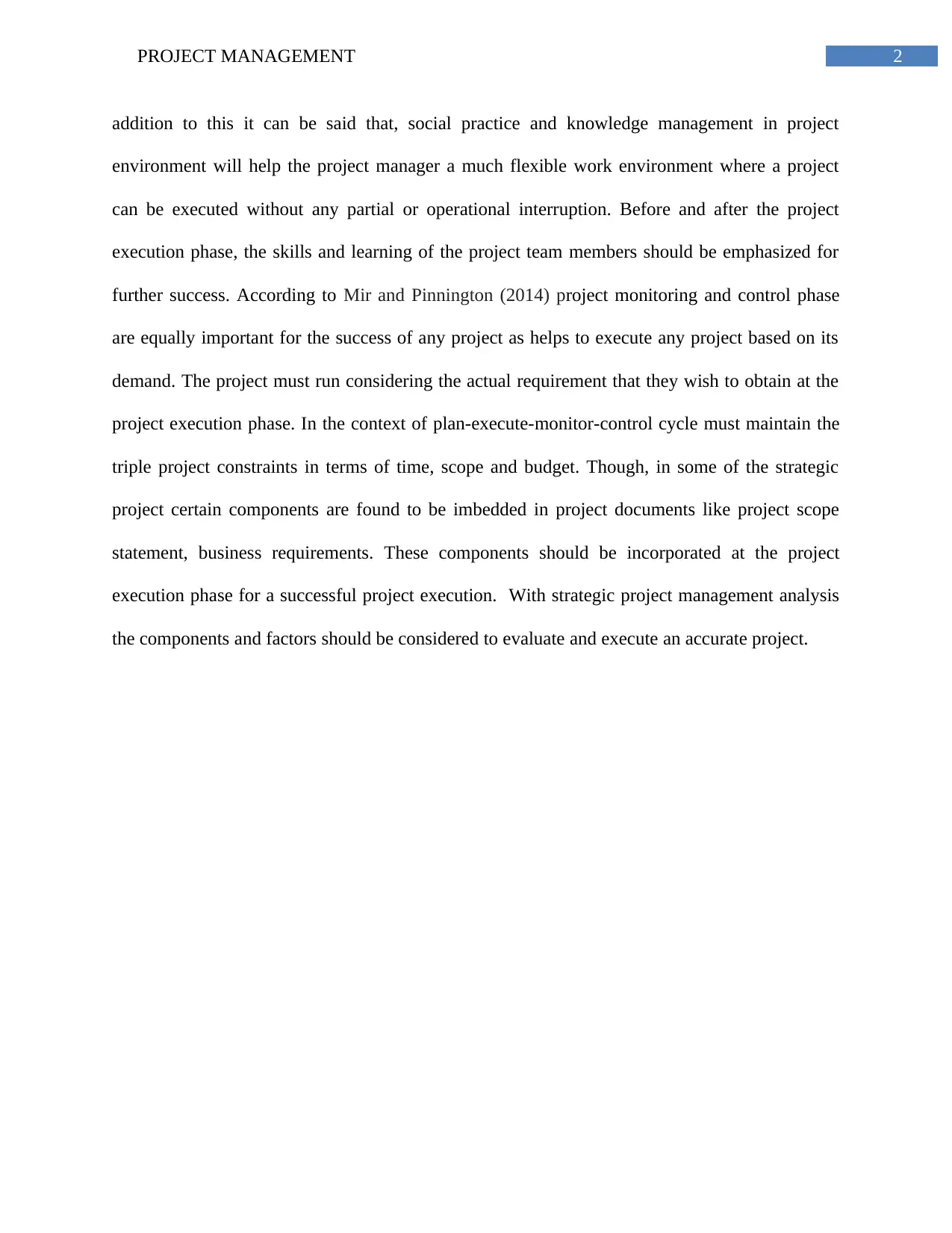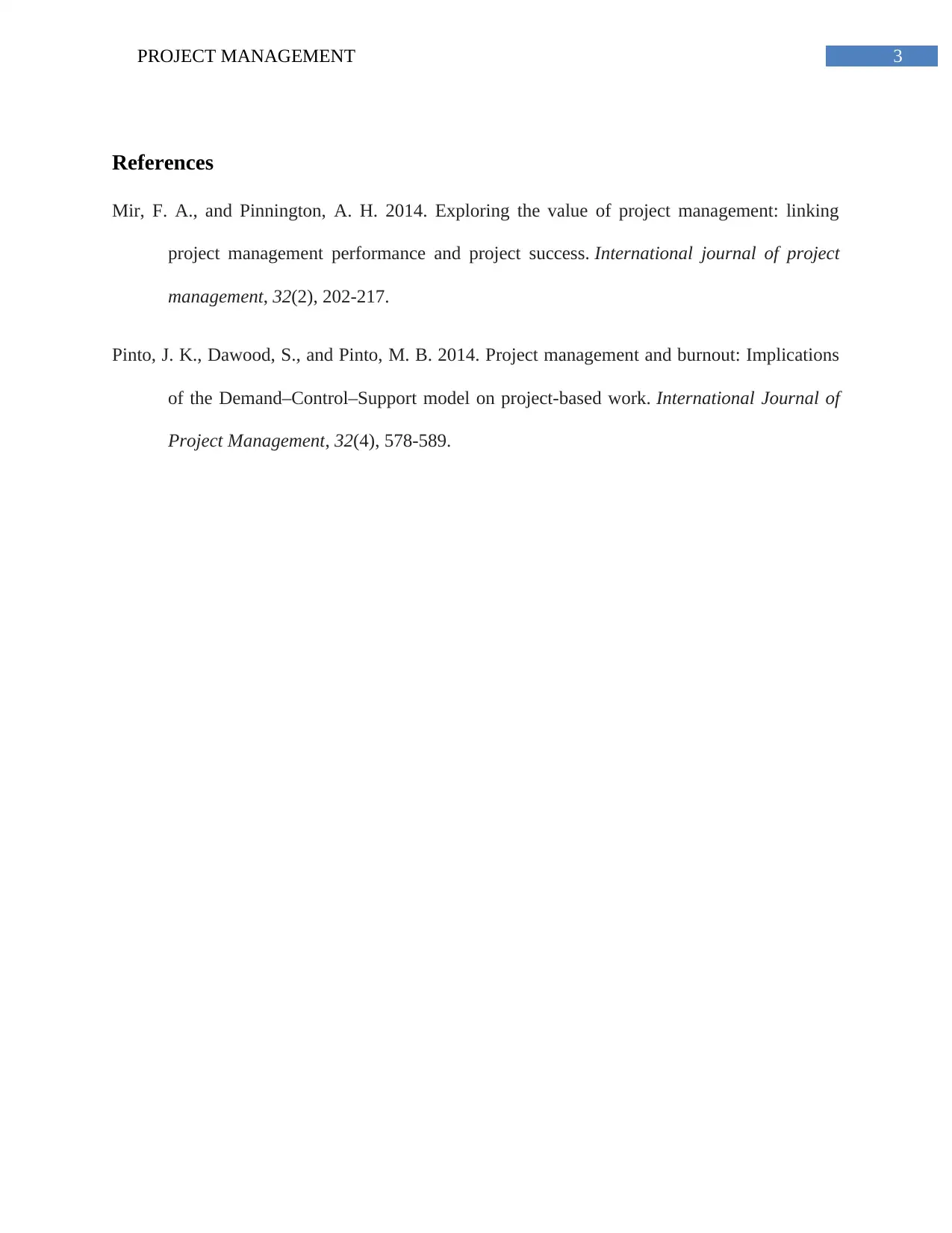Project Execution in the Plan-Execute-Monitor-Control Cycle Context
VerifiedAdded on 2023/06/03
|4
|669
|344
Essay
AI Summary
This essay provides an in-depth analysis of the role and importance of project execution within the context of the plan-execute-monitor-control cycle in project management. It highlights the critical nature of the execution phase, emphasizing that the success of a project hinges on its effective implementation. The essay discusses the five sequential phases of project management (initiation, planning, execution, monitoring and control, and closure) and underscores the growing trend of strategic project management, which integrates project strategies with business aspects. It also touches upon the importance of system analysis, enterprise architecture, system design, hardware, software, testing, development, and deployment in the project execution process. Furthermore, the essay emphasizes the significance of social practice and knowledge management in creating a flexible work environment conducive to successful project execution, and it stresses the need for continuous learning and skill development among project team members. The essay also points out the importance of project monitoring and control in ensuring that projects align with actual requirements and adhere to time, scope, and budget constraints.
1 out of 4










![[object Object]](/_next/static/media/star-bottom.7253800d.svg)